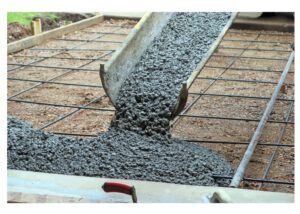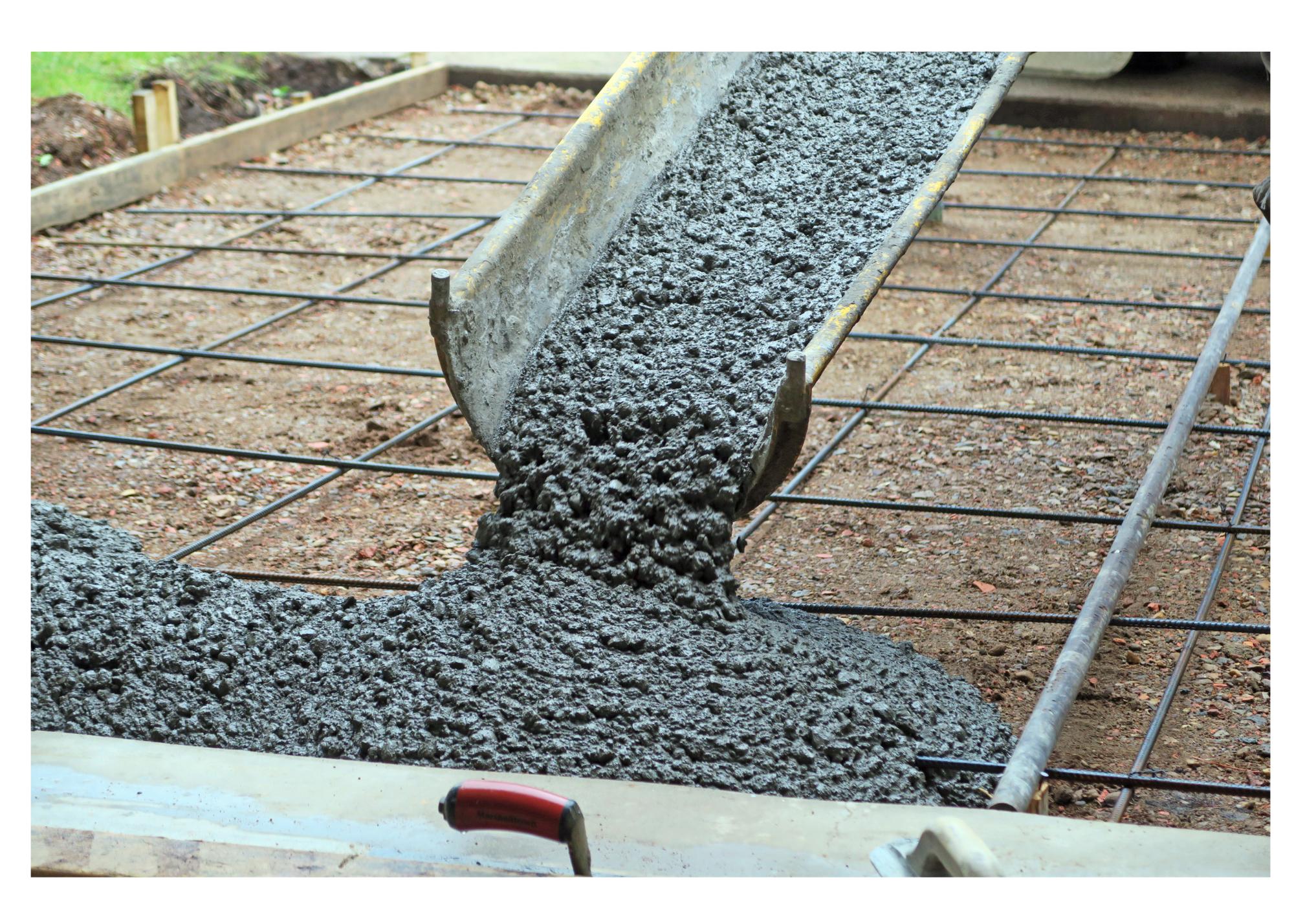Concrete Contractors Colorado Springs play a vital role in any commercial construction project. They provide the foundation that will support the rest of your facility. They keep the entire team and supervisors updated on progress, which is especially important for large projects with tight schedules.
They need to understand the blueprints and follow oral and written instructions. They also need to be bonded, which protects you if they don’t complete the job as promised.
Concrete is one of the most common construction materials in the world. You see it in everything from pavements and motorways to overpasses and buildings. It’s a highly versatile material that can be produced on any site as long as cement, sand, and water are available. It’s also extremely durable, which is why it’s used so often in building projects.
When it comes to working with concrete, only a qualified and experienced concrete contractor should be trusted to complete the work. They have the knowledge and expertise to handle all aspects of a project, from planning to final construction. They will know how much concrete to use, what type of concrete is best for the job, and how to create a stable, solid structure.
The first step in any concrete project is to prepare the area. This includes removing any grass, rocks, trees, or other debris that may be in the way. Then, the area will be graded and compacted. This will ensure that the concrete is poured on a level surface.
Next, the concrete contractors will build the formwork. This will be done by hand or machine, depending on the size and complexity of the project. Once the forms are in place, they will pour the concrete inside of them. This can be done directly from a truck or using wheelbarrows and shovels if the truck can’t reach the job site.
Once the concrete is poured, it will need to set and harden. This is a lengthy process that can take up to 28 days. During this time, it’s important that the concrete is kept damp to help it cure properly. Once the concrete is dry, it can be finished and sealed.
When choosing a concrete contractor, be sure to compare quotes. Look for a company with experience, references, and a good reputation. You should also check to make sure they are licensed and insured. Finally, always choose a contractor who takes their work seriously. This will ensure that the job is completed correctly and on time. It will also save you money in the long run, as a mistake in concrete can cost much more to fix than it would have if it had been fixed correctly in the first place.
They build formwork.
Concrete is a versatile construction material that can be used in a variety of ways. However, concrete construction is a complex process that requires special training and knowledge. If you are building a home or commercial structure, it is important to work with a professional contractor who has the skills and experience to complete the job.
One of the main tasks of a concrete contractor is to build formwork, which is a temporary or permanent mold that holds fresh concrete until it hardens. The formwork must be sturdy enough to support the weight of the concrete and withstand the elements. In addition, the formwork must be easy to assemble and dismantle.
Most concrete contractors begin their careers as laborers on a concrete crew, working their way up through an apprenticeship program and gaining on-the-job experience. They then move on to become a foreman, responsible for a crew and schedule, or a superintendent, overseeing multiple crews.
Before a project begins, the concrete contractor will prepare the site. This includes backfilling and excavating the area. It also means ensuring that the ground is graded and leveled to accept the concrete. In addition, the site must be free of rocks, trash, grass, or other materials that could interfere with the proper installation of the concrete.
Once the formwork is in place, concrete contractors will pour the concrete. They will use a pump to help distribute the concrete and ensure that it reaches all areas of the site. They will also add any necessary rebar, which is steel mesh that strengthens the concrete. The rebar must be sized and placed according to plans drawn by a structural engineer.
Once the concrete is poured, contractors will remove the forms and snap off form ties when applicable. They will also perform any decorative concrete work if needed. Lastly, they will compact and consolidate the concrete to prevent air pockets and promote the strength of the finished product. They will also treat the concrete if necessary with water or steam. In addition, they will clean up the work area and haul away any materials that aren’t part of the final product.
They prepare the concrete.
Concrete contractors are special people who have been trained to handle the concrete process from the time it is mixed in a bucket until it is poured into a form. They know how to make the concrete strong, durable, and beautiful. They are experts in the design and planning of concrete projects and can help you create a unique design for your home or business.
A concrete contractor needs to have good knowledge of how to use all the tools needed for the job. They also need to be able to read blueprints and have a thorough understanding of the construction process. Often times, they will need to work closely with architects and engineers in order to complete their project.
Another important skill that concrete contractors need is the ability to effectively manage their business. This includes ensuring that all the necessary legal requirements are in place, such as insurance, licenses, and permits. Additionally, they must be able to effectively hire subcontractors and staff members. Finally, they must be able to bid on jobs and negotiate prices.
One of the most important tasks that concrete contractors perform is site preparation. This involves backfilling and excavating. They will need to ensure that all debris, dirt, and rocks are removed from the area in order for the concrete to be placed properly. This is a vital step to ensure that the building can withstand heavy loads for years.
Once the site has been prepared, the concrete contractors will then start to prepare the mixture for pouring. This includes adding water, aggregate (rock, sand, or gravel), and cement. The concrete must be mixed in a certain way in order to achieve the right texture. This is done by hand or with a mechanical mixer.
Finally, the concrete contractors will pour the concrete into the forms and use a float to smooth it out. They may also add color and/or decorative concrete finishes to the finished product.
It is always a good idea to get multiple quotes before hiring a concrete contractor. This will allow you to compare prices and the quality of work. Additionally, it is important to choose a company that has experience and a solid reputation. By following these tips, you can be sure to hire the best concrete contractor for your next project.
They pour the concrete.
Concrete is a time-sensitive material, and any delay can be costly. Professional concrete services know how to work quickly and efficiently to get the job done right. Plus, they have the tools and equipment needed to do their jobs. If you try to DIY your concrete project, it’s likely that you won’t have access to all of the necessary tools and materials and may not be able to work as quickly or accurately.
Contractors know how to mix the proper proportions of concrete and pour it properly to ensure that the finished product is strong and durable. They also have the experience to recognize any issues before they get out of hand and can help you prevent them from happening in the first place.
Another major aspect of being a concrete contractor is knowing how to deal with the elements. Because concrete is so temperature-sensitive, even a small change in weather conditions can throw off a whole day of work or result in the failure of the final product. Professional concrete contractors will keep a close eye on the weather forecast and work to find the best times to do their jobs.
When working with a concrete contractor, it’s always a good idea to choose one who is licensed and insured. Licensing requirements vary by location, but you should be able to check with your local building department or home inspector to see what specific qualifications a contractor needs to have before working on your project. It’s also a good idea to choose a bonded contractor, which can protect you in case the contractor doesn’t complete the work or goes out of business. Bonding typically involves putting down money that will cover the cost of any work that’s not completed or if the contractor fails to pay for materials or subcontractors. The amount of money required for a bond can vary, but it’s worth the extra peace of mind to have this protection in place. Then you can feel confident that the work will be done correctly and will last for years to come.

